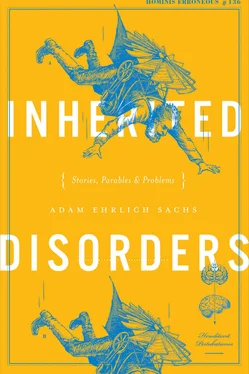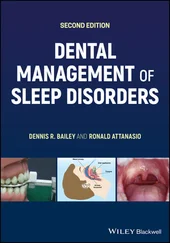By the next colloquium, Perelmann’s son wore sixteen hats. He was Perelmann’s son, Perelmann’s biographer, Perelmann’s philosophical interlocutor, Perelmann’s estate executor, Perelmann’s publicist, Perelmann’s usurper, Perelmann’s housekeeper, Perelmann’s zealot, Perelmann’s annihilator, Perelmann’s designated philosophical heir, Perelmann’s defector, Perelmann’s librarian, Perelmann’s gene carrier, Perelmann’s foot soldier, Perelmann’s betrayer, and Perelmann’s doppelgänger. Twelve new hats joined the repertoire, including a beret, a bandana, a small straw hat, and a sombrero.
Naturally, we were a little alarmed. His evenings, the graduate student reported, were now mere blurs of hat transitions. Nothing stayed on his head for long. But reality, we assumed, would sooner or later impose a limit on his mania. There are only so many kinds of hats, just as there are only so many relations that can possibly obtain between a father and a son. In due course Perelmann’s son would run out of either hats or relations, we thought — probably hats — and thereafter he would return to reason.
But soon there were relations we had never considered, hats we’d never heard of. He was Perelmann’s old — Jewish — joke repository, Perelmann’s voice impersonator, Perelmann’s sweater-wearer, the last living practitioner of Perelmann’s skiing technique, Perelmann’s surpasser, Perelmann’s victim. He wore an eighteenth-century tricorne, a deerstalker, a round Hasidic kolpik, an Afghan pakol with a peacock feather tucked into its folds.
By the end of fall semester we knew something had to be done. The explosion of hats and relations had not abated. Left alone, we realized, Perelmann’s son would partition his relationship with his father ad infinitum, and for each infinitesimal slice of relationship he would purchase a hat. Ultimately he would turn his relationship with his father — by nature, one simple thing — into something infinitely complex, and his hat collection would, correspondingly, grow without bound, and he would wind up destroying himself. His analytical tendency, along with the huge hat collection that resulted from it, would obliterate him.
So, one morning, in an attempt to save him from himself, a group of graduate students and junior faculty members slipped, with the department chair’s blessing, into Perelmann’s son’s apartment. (He was at a Perelmann conference.) We gathered all the hats and put them in garbage bags—128 hats in twelve garbage bags — and got them out of there.
But in our hearts we must have known that we were treating the symptom, not the cause. Yesterday, according to our informant, Perelmann’s son spent all day and all night in a ten-gallon hat of thus far unknown paternal associations.
…………………….
Linguists last year were overjoyed to discover two living speakers, a father and son, of a Finnic language long believed to be extinct. The father lived in North Karelia, the son in South Karelia. Both agreed to be flown to Helsinki to have a conversation observed and recorded by a consortium of eighty linguists in the hope of preserving the language. But the conversation was so stilted, so perfunctory, so silence-ridden and self-conscious that afterward the eighty linguists declared the language, for all intents and purposes, extinct. This is said to be the first time a language has ever been declared extinct while there are still people alive who speak it.
…………………….
A familiar legend — recounted, for example, by the Czech folklorist František Neff — has it that the clockmaker behind Prague’s remarkable astronomical clock, which ticks away to this day in the Old Town Square, the figure of Death striking every hour, had his eyes plucked out by the Councillors of Prague so that he could never repeat his work, much less surpass it.
Now, the clockmaker had three sons, the eldest of whom was an expert horologist in his own right. He planned to avenge his father, to whom he was exceptionally devoted, by constructing in a little Bohemian village an even more spectacular astronomical clock, twice as tall, twice as ornate, and twice as accurate as the clock in Prague. He worked, of necessity, in total secrecy. But as the clock tower grew in height the secret became harder to contain. When it finally came out, the Councillors of Prague marched on the village, knocked down the tower, arrested the eldest son, and plucked out his eyes.
The clockmaker’s middle son was a competent horologist, and moderately devoted to his father. He also — as he told his older brother — was rational, and valued his eyes. He was reluctant to do what his brother, with his appallingly empty sockets, asked of him: to build, in a remote Moravian village, an astronomical clock three times as tall, three times as ornate, and three times as accurate as the Prague clock, in order to avenge their father and humiliate the Councillors of Prague. But his older brother, besides being an expert horologist and a devoted son, was an indefatigable requester of things, and a skilled instiller of guilt. “After everything Dad’s done for us,” he said, “this is the least we could do for him. I would do it myself, but as you know the Councillors plucked out my eyes.” (He pointed manipulatively at his sockets.) At last the middle son was worn down. He began building a wondrous clock tower in an obscure corner of Moravia, far from Prague’s scrutiny, but word reached the Councillors of Prague nevertheless. They marched over, knocked down the clock tower, and plucked out the middle son’s eyes.
The clockmaker’s youngest son was a poor horologist, and not particularly devoted to his father. Yet here, as in a nightmare, came his oldest brother with his empty sockets and his “suggestion”—it always began as a mere suggestion — that his little brother build a clock tower four times taller, four times more ornate, and four times more accurate than their father’s clock tower, for the purposes of vengeance, but with the inevitable result (as the youngest pointed out) that the Councillors of Prague would knock it down and pluck out his eyes.
Life became miserable for the youngest son. All day long he took care of the three blind horologists, who chattered about clocks or hurled imprecations at the Councillors of Prague; periodically his oldest brother took him aside and muttered significantly about family and duty and “suggested” he construct a clock tower four times better than the one in Prague; meanwhile a rumor circulated that the Councillors were coming for his eyes as a kind of preventive measure. He could not understand how this had become his life; he was not even interested in timekeeping .
Finally, one day, he disappeared.
František Neff, the folklorist, traces two variants of the legend. In one, the youngest son was seized by the Councillors of Prague, his eyes plucked out and his head put on a spike that emerges, briefly, to music, from his father’s clock every autumnal equinox. In the other variant, told mostly to children, he escaped to the mountains, where he is, even now, building a clock tower that will eventually surpass Prague’s in every dimension.
…………………….
For more than nine hundred years, a line of sages in a remote region of Hokkaido, Japan, has produced commentary after commentary on an ancient text of ethical and metaphysical reflection that was lost long ago. Each commentary serves as the primary source for the commentary that succeeds it.
By the fourteenth century it had struck one sage that the chain of commentary was generating ethical and metaphysical questions rather than answers, obscurity rather than clarity, sadness rather than happiness. This is what he wrote in his commentary, a call to end all commentary, a text which became known as the Cessation Commentary.
Читать дальше












